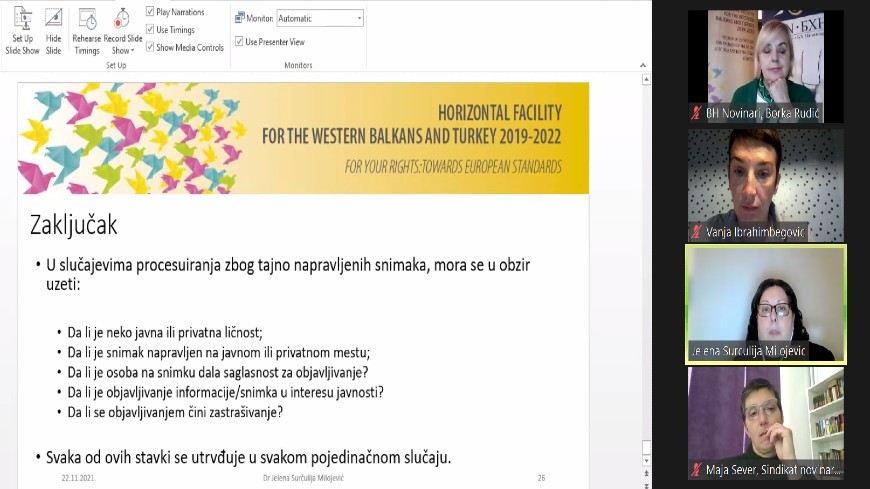At the inter-professional seminar organised in co-operation with the Association of Journalists "BH journalists”, one of the most controversial topics when it comes to the balance between the right to privacy and the right to the freedom of expression has been opened: making secret recordings in the context of investigative journalism and publishing of secretly recorded information.
The journalist community in Bosnia and Herzegovina (BiH), in dialogue with the judiciary and academia, has been trying to find an answer to this question - how to make a balance between these two rights: the right to privacy of the actors of investigative stories and the right of the public to be informed on any information of the public importance; but also the right of media to bring that information into public discourse.
The relevant practice of the European Court of Human Rights, that represents the standards and defines the criteria for ethical action in this context, was presented by the Council of Europe's international expert Jelena Surčulija Milojević. She pointed out the importance of distinction between investigative journalists and tabloids, or more precisely the importance of distinguishing the right of the public to be informed of any information of public importance and satisfying curiosity about some public figures. It is also important to distinguish the type of public figures who are either obliged by the nature of their work or by their own choice, to give up the part of their privacy and suffer a greater degree of public criticism in their work, such as politicians, lawyers, civil servants and others.
Local legal experts presented the legal framework in Bosnia and Herzegovina in regard to the publishing of secretly made footages. Secret recording is regulated by the criminal law in Bosnia and Herzegovina but according to the panellists at this gathering, judicial practice in BiH does not always follow the standards of protection as set by the European Court of Human Rights. However, good examples of judicial practice still do exist and in those the public interest is valued in this context, which is also in the spirit of the European Convention on Human Rights.
Journalists from Bosnia and Herzegovina and Croatia shared their experiences and recalled the importance of investigative journalism for strengthening of democracy in any society. This webinar was organised within the joint European Union and the Council of Europe action "Freedom of expression and freedom of the media in BiH - JUFREX 2".


